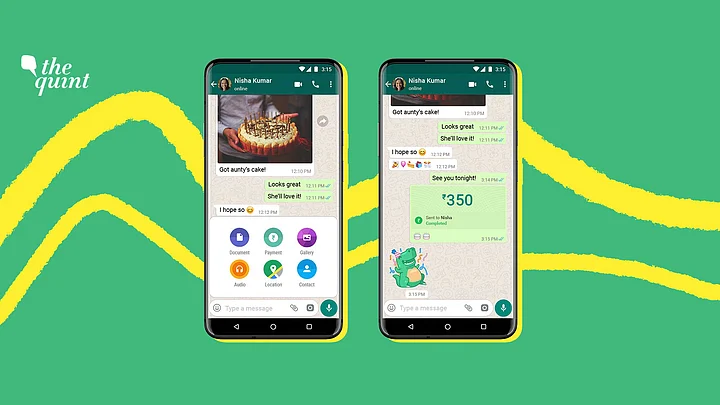After two years of testing, WhatsApp payment service on Thursday, 5 November, received approval from National Payments Corporation of India (NPCI) to go live on Unified Payment Interface (UPI) in the multi-bank model.
“I am excited today that WhatsApp has been approved to launch payments across India,” Facebook CEO Mark Zuckerberg announced in a video.
The Facebook-owned private messaging service has over 400 million users in India.
The move comes after NPCI in August had informed the Reserve Bank of India that WhatsApp had met data localisation requirements.
In India, the WhatsApp payment service will compete against other major players like Google Pay and PhonePe, Amazon Pay among others.
Is WhatsApp Payments LIVE?
Yes, the feature is currently live and starting Friday, 6 November, people across India will be able to send money through WhatsApp.
“This secure payments experience makes transferring money just as easy as sending a message,” WhatsApp said in a blog.
People can safely send money to a family member or share the cost of goods from a distance without having to exchange cash in person or going to a local bank.
Will I Be Able to Use it Straighaway?
There’s a bit of a catch here. WhatsApp payments will be launched but restricted to user registrations restricted to 20 million for now. WhatsApp can expand its UPI user base in a graded manner, NPCI (National Payments Corporation of India) has said.
WhatsApp has a user base of over 400 million. Among the reasons for its restricted launch is the concern that full scale operations may lead to skewed dominance in the UPI ecosystem.
“While UPI is dominated by two players – Google Pay and PhonePe – that have market share close to 80%,” Medianama reported adding “if WhatsApp were to roll out its UPI service to even half of its user base it would create a huge load on the banking infrastructure that supports third-party UPI players, said a senior payments industry expert aware of WhatsApp Pay’s operations in India.”
How Will This Work?
WhatsApp has designed payments feature in partnership with the NPCI using the Unified Payment Interface (UPI).
“To send money on WhatsApp in India, it’s necessary to have a bank account and debit card in India. WhatsApp sends instructions to banks, also known as payment service providers, that initiate the transfer of money via UPI between sender and receiver bank accounts,” the official blog stated.
WhatsApp payments will be working with five banks in India: ICICI Bank, HDFC Bank, Axis Bank, the State Bank of India, and Jio Payments Bank. People will be able to send money on WhatsApp to anyone using a UPI supported app.
How Do I Send or Receive Money?
Here’s how you can start sending or receiving money using WhatsApp
- Click on the WhatsApp app on your mobile phone and select the three-dotted icon visible on the top right corner of your screen.
- Select 'Payments', then 'Add payment method'
- A list of bank names will be on your screen.
- After you finish selecting your bank name, your cell number, which is linked with the bank, will be verified.
Why Was WhatsApp Payments Delayed for So Long?
Facebook’s ambitious digital payments operations in India, one of the fastest growing markets, has been a frustrated and staggered experience at best.
According to an Assocham-PWC India study, digital payments in India will more than double to $135.2 billion in 2023 from $64.8 billion in 2019.
Facebook sure wants a share of the pie.
However, WhatsApp Pay has remained stuck owing to the Reserve Bank of India’s demand to store data locally, and has not gone far beyond the beta testing it did with nearly one million users last year.
In November 2019, the RBI had told the Supreme Court that it would not allow a full-scale launch of WhatsApp Pay on the Unified Payments Interface (UPI) until it complies with the data localisation norms.
In February 2020, however, the National Payments Corporation of India (NPCI) gave its nod to WhatsApp’s parent company Facebook for launching the payments feature in India in a phased manner. The company has indicated that it is willing to comply with RBI’s requirements of storing data within India.
(At The Quint, we question everything. Play an active role in shaping our journalism by becoming a member today.)
